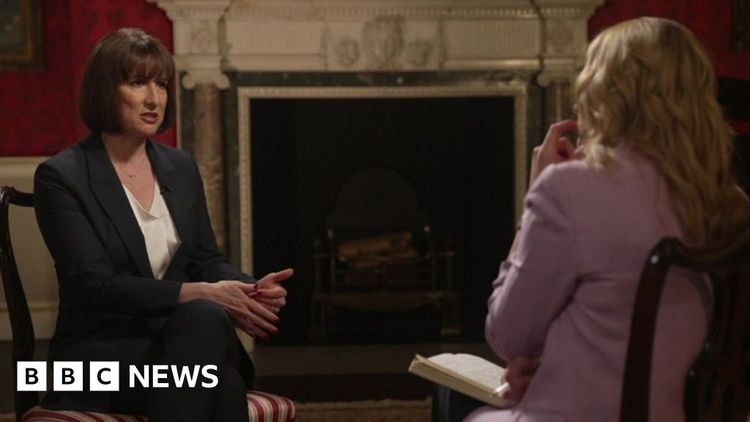Chancellor Rachel Reeves hints at above-inflation public sector pay rise

Host, Laura Kuenssberg on Sundays
Reeves: The downside of not agreeing on public sector pay
The chancellor suggested that she might offer public sector workers pay increases that are higher than the rate of inflation this upcoming summer.
Rachel Reeves made her comments in response to reports that independent pay review bodies had suggested a 5.5% pay raise for teachers and certain NHS employees.
In her first public statement since moving into No 11 Downing Street, she expressed her appreciation for public servants, including those working in schools, hospitals, and the police force.
Not being willing to compromise comes with a price - it can lead to more strikes in the future and make it harder for us to find new employees.
Ms Reeves explained to Laura Kuenssberg on Sunday that they will handle the situation correctly and ensure that all the numbers make sense. She made it clear that her spending guidelines are strict and cannot be changed.
The new chancellor assured that a decision on public pay would be made this month, stating that "people will not have to wait long".
Talking in an interview that was taped on Saturday, Ms Reeves also criticized the Conservative Party for holding the election because "they didn't want to make difficult choices, and they simply fled."
She mentioned that the former education secretary had delayed making a decision about teachers' salaries, and criticized the Conservatives for allowing a troubling situation to develop in prisons.
Her predecessor, Jeremy Hunt, denied this and claimed that the Conservative government had already made tough choices in response to the additional funding needed due to the Covid pandemic.
He claimed that Ms Reeves was attempting to set the stage for higher taxes by overstating the weakness of the public finances. He also dismissed the idea that the Tories had left behind the most challenging economic situation since World War Two as untrue.
He acknowledged, though, that his party would not be able to implement the tax reductions it had pledged during the election right away.
"I believe we could have accomplished it on schedule, and we had strategies ready to make that happen," he informed the show.
The Institute for Fiscal Studies (IFS) predicted that the potential expense of increasing teachers and select NHS staff's salaries by 5.5% could reach up to £3 billion. This figure surpasses the 2.5-3% raise originally anticipated by the Treasury.
The head of IFS, Paul Johnson, explained that funding such a raise would mean the government would have to borrow more money, raise taxes, or reduce spending in other areas.
The latest data from the Office for National Statistics shows that inflation was at 2% in May and June. This means that any pay increase above 2% would be considered higher than inflation.
However, Mr Johnson stated on BBC Radio 4's Today show on Saturday that the 5.5% number is approximately the rate at which wages are increasing in the overall economy.
Normally, governments listen to advice from independent organizations, but ministers are not required to follow their recommendations.
Suggestions for other industries have not been received yet, but the chancellor intends to reveal the agreements before July is over.
Ms Reeves also informed the BBC that the government plans to conduct a groundbreaking assessment of pensions as a key component of a significant push for economic expansion.
Those who give up things and save money every month to set aside for their retirement should receive higher returns on their savings than what they are currently getting.
The chancellor is also aiming to revise industry regulations so that the billions of pounds held in pension funds can be utilized more readily to invest in British companies and boost the economy.
She further stated, "By accessing just 1% of the funds from defined contribution plans and allocating it towards higher yielding assets and rapidly growing UK businesses, we could potentially generate £8 billion to support economic development and the accumulation of wealth within Britain."
This government is working quickly to attract investment to boost our economy and support hardworking people who are currently being disappointed by the pension system.
You can watch the complete interviews with Rachel Reeves and Jeremy Hunt from Sunday with Laura Kuenssberg on iPlayer.
: You may also find this section intriguing:









































